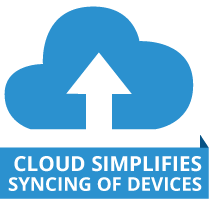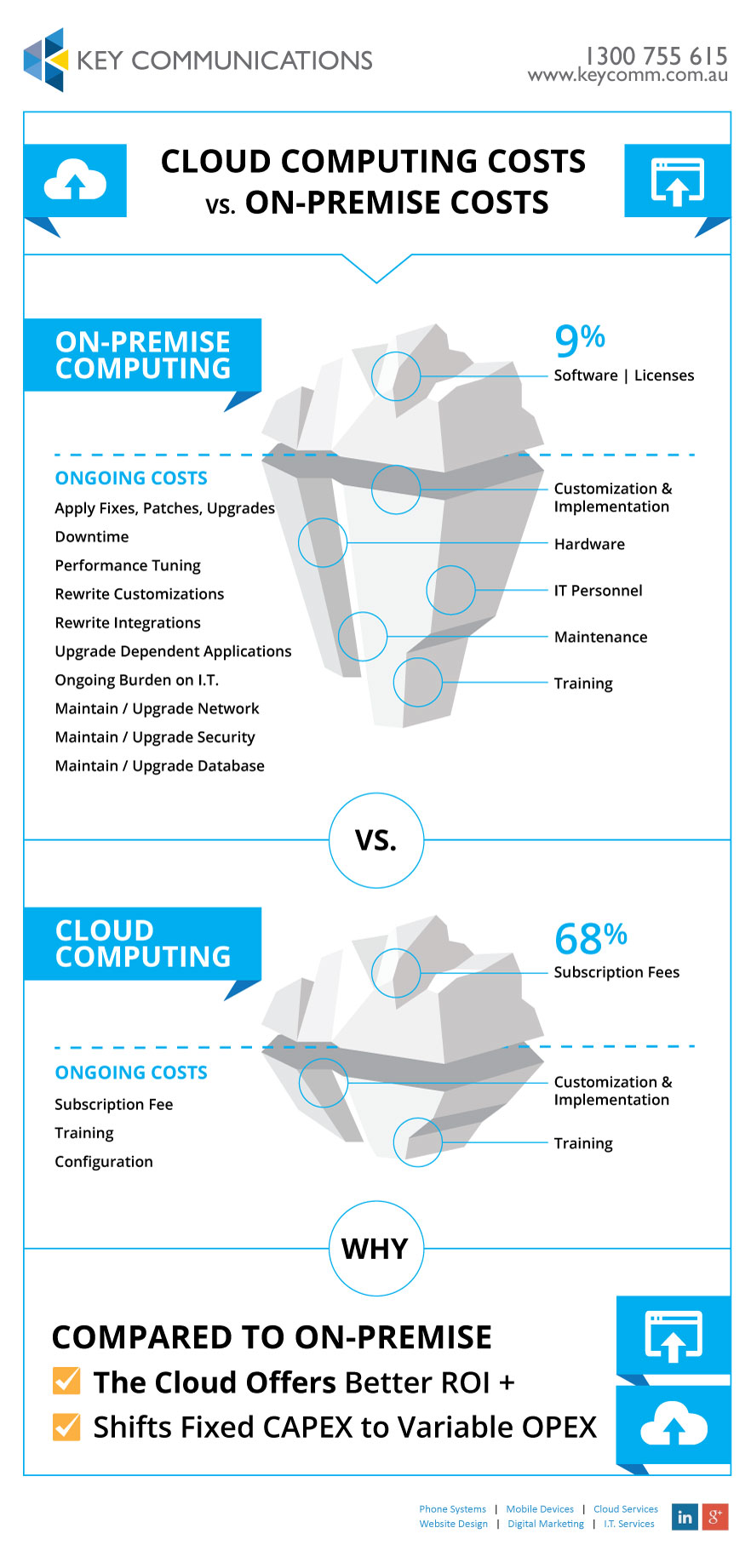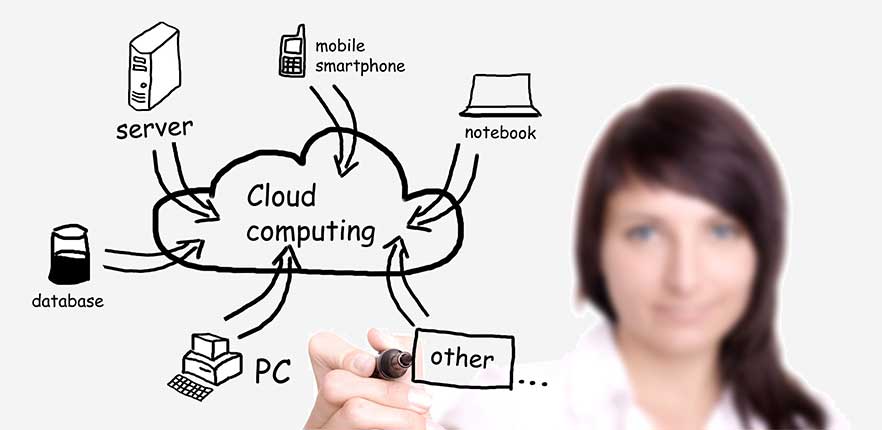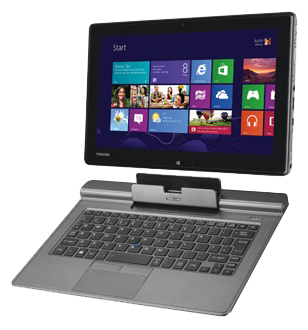
by KeyTech | Oct 21, 2014 | Business Communications Solutions, Cloud, Mobile Devices, Mobile Phone Costs
Business is becoming highly mobile, smartphones do more, tablets and ultrabooks are replacing desktop computers, cloud computing is keeping us connected in more places, more often and the right companies are embracing flexible work options for there employees.
A number of our Brisbane business clients have introduced more flexible hardware (device) options to their teams, whether it be subsidising staff devices or offering BYOD arrangements…
[shareaholic app=”share_buttons” id=”12025595″]
What is BYOD – BYOD or Bring Your Own Device is a policy or practice that allows personal devices to serve doubly as a work device, these can include mobiles, tablets, laptops and USB modem.
Client feedback indicates staff are happier, more comfortable and productive working from their own technology. For business there are cost saving from a reduction in hardware spend and device management, and the flexible working arrangements also lead to an increase in staff satisfaction and for some businesses, the incentive has attracting a wider talent pool.
Companies have also benefited from newer and more advanced devices than would be deployed by their own I.T. departments.

There is a downside to flexible device options for business…
A concern for many of our clients is device security, especially for lost devices; concerns are amplified when personal devices containing sensitive content has only limited password protection; something else to be aware of, an increase in ‘Consumerism’ in the work place can introduce unwanted hacking and virus threats.
Sometimes the reduction in hardware spend is offset by an increase in I.T. resources to integrate, support and secure the various different devices and operating systems. Depending on the levels of security required by your business, a BYOD model will simply not work for organisations with highly sensitive corporate data.
Cloud Computing is simplifying things though…
With tremendous growth in cloud computing, business operations are becoming more virtualized; progressive organisations are migrating to the cloud, which is resulting in less and less data stored locally on PCs and on-premise servers, shifting to cloud based servers that deliver content practically on call, when are where it is required.
For cloud based businesses, managing user access and permissions becomes far simpler, generally from an online portal that can be enacted instantly (once a devices comes online). Managing redundancy for lost or damaged devices can be as simple as sourcing a replacement device and syncing with the relevant company applications. Again the level of acceptable protection would be relative to the sensitivity of the data you company requires to be protected.
Need More Control? There is always Mobile Device Management
If your business requires an added level of control to ensure your corporate data remains secure, our mobile device management can perform a wide range of administrative functions from one convenient portal…

- Simple to use, all you need is internet access and a login and password.
- Deploy the business applications your staff need to work effectively.
- Avoid the cost of deploying and running in-house systems and support.
- Maintain and deploy security policies on devices to safeguard corporate information.
- Compatible with the most popular operating systems from iOS, Android™ and Windows®
There are no software or maintenance fees, only requiring the purchase of a client access license for individually owned or Wi-Fi only devices.
Looking for a Workhouse of a Tablet Computer with 4G?
The Toshiba Z10T has been a popular mobile for other Brisbane Businesses looking for the productivity of a laptop and the portability of a tablet…
The Fully Featured Toshiba Z10T
Together. Apart. Always stay connected to your digital life with this high-performance convertible and detachable Ultrabook™ Tablet that adapts to the way you live, work and play
Full HD Touchpanel Display
The superb wide-view 11.6” Full HD (1920 x 1080), LED touchpanel display delivers incredible life-like imagery, while the digitizer allows you to work the way you want.
Impressively thin and light!
In its tablet mode, the Z10t measures a super-svelte 16.9mm from front to back and weighs just 850g.
4G
Stay connected, seriously productive and fully entertained with 4G ultra-broadband
Fully-ported detachable keyboard
Create, convert and consume with the keyboard that keeps you always connected for life on the go. This world-first* detachable Ultrabook™ keyboard is packed with productivity and entertainment options including LAN, RGB, HDMI®, SD, USB 3.0, USB 2.0, HD webcam with microphone and a full size I/O port!
The Toshiba Z10T Can Be Bundled On Your Telstra Bill or purchased ourtright
Tech Speccs for the Toshiba Z10T
Portégé Z10t-A (4G)
CPU Intel® Core™ i5 Processor 3439Y (1.5GHz 2.3GHz (2 Cores, Turbo) 1333MHz FSB, 256 KB per core L2 cache, 3MB L3 cache)
Operating System Windows 8 Pro 64Bit
Screen Size 11.6″ Widescreen In-Plane Switching technology (IPS) Full High Definition TFT Active Matrix (1920 x 1080) with Backlit resolution and Touchpanel (Capacitive) with Digitiser (Stylus Pen)
Memory 4GB DDR3 (1600Mhz)
Storage 256GB SSD (mSATA)
Graphics Intel® HD Graphics 4000
Portege Z10t (4G)
CPU Intel® Core™ i5 Processor 4300Y (1.6GHz – 2.3GHz (Turbo, 2 Cores) 1600MHz MC, 256 KB per core L2 cache, 3MB L3 cache)
Operating System Windows 8 Pro 64Bit
Screen Size 11.6″ Widescreen In-Plane Switching technology (IPS) Full High Definition TFT Active Matrix (1920 x 1080) with Backlit resolution and Touchpanel (Capacitive) and 1 x Internal Slim Digitiser pen and 1 x Regular Digitiser pen
Memory 8GB DDR3L (1600Mhz)
Storage 128GB (SSD) mSATA
Graphics Intel® HD Graphics 4000
P.S. Currently using Windows 8?
Windows 8 has been out for some time now, and while the operating system (OS) change has been a significant one from your windows desktop of two decades, the new tiled interface includes some tricks built into the OS you may not be aware off, tricks that can help ease your transition and get you more from your Windows 8 device.
Gizmodo have prepared a great article 6 hidden Windows 8 features your can’t live without
Have a question about BYOD arrangements or device flexibility options for your business? Add in the comments box below and we’ll answer it. Or stay up to date with the latest articles connect with us directly on LinkedIn or Google+.

by KeyTech | Oct 14, 2014 | Cloud
Making a smart purchasing decision when it comes to cloud computing for Brisbane Business is made complicated by the millions of cloud based business tools available, achieving digital enlightenment (truly understanding your strategic cloud requirements) should be the first step, followed by a conversation with a cloud business professional.
[shareaholic app=”share_buttons” id=”12025595″]
(more…)

by KeyTech | Sep 12, 2014 | Cloud, Solutions
Examine the long term impact of Cloud Computing Costs on your business in comparison to the cost of on-premise computing, this infographic helps explain…
Cloud Computing offers a host of productivity benefits to business, and has been leveraged by large corporations for a number of years. For small and medium businesses the barrier has always centered around cloud computing costs, in particular infrastructure requirements for business grade reliability.
[shareaholic app=”share_buttons” id=”12025595″]
Increased fixed line data speeds and 4G mobile data speeds (5G in future) have contributed to cloud computing #trending.
For business it always comes back to costs and there is much confusion about the long term cost benefits of switching to cloud computing; the following infographic helps to illustrate where the majority of costs come from for on-premise computing vs. cloud computing…
Cloud Computing Costs vs. On-Premise Costs – Infographic

If you are looking to move your business to the cloud, and want to better understand the migration process – talk to us.
Don’t Stress
Moving your business to the cloud can be easy!
It doesn’t have to be All-or-Nothing > A Step-by-Step approach is recommended – Providing service redundancy, giving your business time to adjust and supporting staff up-take of new procedures.
Additional Benefits – As the burden of multiple services is removed from on-premise I.T. infrastructure, remaining services can become quicker and available capacity can be re-purposed.
Need a cloud strategy for your business?
Talk to us on 1300 755 615
A Great Place To Start!
Office 365 is perfect for business…

We have broken costs down even further, comparing on-site Exchange servers and maintenance requirements against Office 365
Have a quick question about the cloud? Add in the comments box below and we’ll answer it. To stay up to date with the latest articles connect with us directly on LinkedIn and Google+.

by KeyTech | Sep 4, 2014 | Cloud, I.T., Solutions, Telecommunications
Business Telcommunications, I.T. and Marketing fields are synonymous with technical jargon, acronyms and general all round outside confusion. Our goal is to eliminate the confusion and provide complete transparancy for our current and future clients, to help us with the task is our new FAQs section…
[shareaholic app=”share_buttons” id=”12025595″]
Only last we asked you if there were any questions you wanted answered?
We assumed (our mistake) that this will be limited to Telecommunications, Information Technology and Web Design / Marketing, however… There was one business owner curious on the meaning of life?
We took it in good humor and, while there was much debate in the office the geeks won out and we responded with a quote from Sci-Fi writer Terry Pratchet “Ye know full well that the meaning of life is to find your gift. To find your gift is happiness. Never tae find it is misery.”
In addition we did receive a few Telecommunications questions which has spurred us on to include a FAQs section to the Key Communcations website. The newly added FAQs section can be found under solutions (in the top menu) or by clicking here.
You asked, Key Technologies Answered
While we quickly responded to the emails received we’re happy to share the questions and answers below:
Q. Is the term Unified Communications marking fluff or is there a real meaning?
A. It’s more than just spin doctoring, Unified Communications (UC) is the integration of real-time communication services. This includes instant messaging (chat), presence information, voice (including IP telephony), video conferencing, desktop sharing, data sharing, call control and speech recognition with non-real-time communication services such as unified messaging (integrated voicemail, e-mail, SMS and fax). UC is not necessarily a single product, but a set of products that provides a consistent unified user-interface and user-experience across multiple devices and media-type
Q. I have seen ‘Presence Information’ used in my reseach, sure I could google it, but can you provide me with an explanation?
A. Sure Can, Presence Information is a status indicator that conveys ability and willingness of a potential communication partner—e.g. the user—to communicate. A user’s client provides presence information (in simple terms whether they are available or not) via a network connection to a presence service, which is stored in what constitutes their personal availability record (called a presentity) and can be made available for distribution to other users (e.g. reception) to convey your availability for communication. Presence information has wide application in many communication services and is one of the innovations driving the popularity of instant messaging or recent implementations of voice over IP clients.
Answers to these questions and more can be found on our FAQs page
We really appreciate your feedback and input!
It is early days for our FAQs section, and we are adding new answers and definitions every day.
So if you have a question you would like answered or perhaps an acronym that needs clarification we would love to hear it, you are welcome to add to the comment box below or email Key Technologies directly on info@keycomm.com.au

by KeyTech | Aug 21, 2014 | Cloud
The CLOUD refers to services delivered over the internet. Your business can access cloud services from virtually anywhere, whether it be a desktop, PC, laptop, tablet, smartphone, or other device with an Internet connection.
As the tech heads refer to it – Software as a Service (SaaS)
[shareaholic app=”share_buttons” id=”12025595″]
Using a cloud-based service means
- Your I.T. infrastructure resides off-premise (not on your property)
- Is hosted (maintained by a third party)
- Replaces software residing on a server on-premise (at your business)
You are probably already using a Cloud Service!
Many services you already use every day are a part of the cloud e.g. web-based email such as Gmail or Hotmail, mobile banking, online storage such as Dropbox or music platforms such as Soundcloud and Spotify.
Because the infrastructure is located online or “in the cloud” rather than on-premise, you can access it from virtually anywhere, whether it be a desktop, PC, laptop, tablet, smartphone, or other device with an Internet connection.
Cloud Services have been around for over a decade
Cloud services are nothing new – back in 1999 Salesforce.com became the first site to deliver software and applications online, followed by Amazon in 2002 with Amazon Web Services (AWS).
Increasing internet data speeds and accessibility has delivered the required stability for cloud-based services delivery. In 2008 Google and Microsoft entered the cloud market (Apple in 2010 with iCloud) pushing cloud technology mainstream, as more users ‘got online’ business grade cloud based services became highly affordable for small and medium business.
What Cloud Services offer small and medium businesses
From 2013 subscription costs models for SaaS enabled businesses to replace expensive upfront license costs and delivered the latest software, frequently updated with the newest features without the need for the large office infrastructure investment.

Cloud based software offers flexibility to business allowing companies to scale the number of users up or down, depending on their needs, and support is now readily available as it is delivered remotely, in place of costly on-site requirements.
For companies who need to facilitate collaboration and productivity among staff or leverage geographically disperse teams, SaaS platforms are a cost effective way to achieve this.
Key Technologies is a Cloud Services advocate
At Key Technologies we lead by example, out teams can work without the need of an office, requiring a device and an internet connection. Company documentation and CRM are all accessible remotely, along with email, contacts, calendars and shared resources. Security and back-ups are all completed automatically, and business accounting is all completed via the cloud.
While we still have out office in Toowong for technical servicing, stock management, client support and team meetings, all Key Communication representatives are more flexible, more productive and highly responsive to our clients’ requirements, vital for maintaining our competitive edge in the highly competitive telecommunications space.
The Cloud is here to stay…
The ever increasing demand for data means cloud computing continues to grow; the speeds achieved over the 4G mobile network is phenomenal and is keeping more people connected on the go, with 5G rolling out in 2015 businesses that choose to ignore the advantages of cloud-based services will find it more and more difficult to keep up with the demands of a changing market place.
If you are looking to move your business to the cloud, and want to talk to a company that stands by the services they deliver – talk to us.
Have a question about the cloud, add in the comments box below and we’ll answer it. To stay up to date with the latest articles connect with us directly on LinkedIn and Google+.












